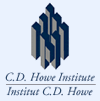Seeking Financial Stability: The Best Role for the Bank of Canada
Where Should the Buck Stop? The Bank of Canada and Financial Stability
TORONTO, Ottawa must move carefully in deciding the best role for the Bank of Canada in preventing threats to financial stability, according to a report released today by the C.D. Howe Institute. In "Seeking Financial Stability: The Best Role for the Bank of Canada," former Bank of Canada Governor John Crow assesses how much of a role the Bank should play in this new policy front.
Since the 2008/09 financial crisis, notes Crow, each G-20 country has had a responsibility to re-examine its regulatory and supervisory processes and establish a clear and focussed policy framework for preventing threats to financial stability. Some countries have seen the establishment of new structures, such as the US Financial Stability Oversight Council, and the allocation of new responsibilities for macro-prudential oversight.
Crow's focus is on the best role for the Bank of Canada in light of its monetary responsibilities. He emphasizes that through a record of consistent achievement over many years, the Bank has established a remarkable general understanding and acceptance of its monetary policy framework - one centered on sustained low, and therefore stable, inflation as a national financial anchor.
The author concludes there is no particular virtue in adding to the Bank's responsibilities further, and quite distinct, policies that will stretch that credibility. "Given the high value of what the Bank is already responsible for, it should be particularly hesitant about taking on new responsibilities on such a broad, and as yet extremely ill-defined, policy front," he says.
Financial stability is an area where the likely policy tools are markedly different from those normally involved in monetary policy, notes Crow. Also, given a longstanding continuing federal financial regulatory establishment, the channels of responsibility and authority for those tools promise to be somewhat diffuse.
When it comes to the central bank, focussing on its ability to deliver on its clearly assigned monetary policy mandate comes first.
For the report go to:
For further information:
contact: John Crow, former Governor of the Bank of Canada (1987-1994); or Philippe Bergevin, Senior Policy Analyst, C.D. Howe Institute, email:
cdhowe@cdhowe.org.
C.D. Howe Institute -- Bio and
Archives |
Comments
The C.D. Howe Institute is a national, nonpartisan, nonprofit organization that aims to improve Canadians’ standard of living by fostering sound economic and social policy.
The Institute promotes the application of independent research and analysis to major economic and social issues affecting the quality of life of Canadians in all regions of the country. It takes a global perspective by considering the impact of international factors on Canada and bringing insights from other jurisdictions to the discussion of Canadian public policy.
The Institute encourages participation in and support of its activities from business, organized labour, associations, the professions, and interested individuals. For further information, please contact the Institute’s Development Officer at .(JavaScript must be enabled to view this email address).
